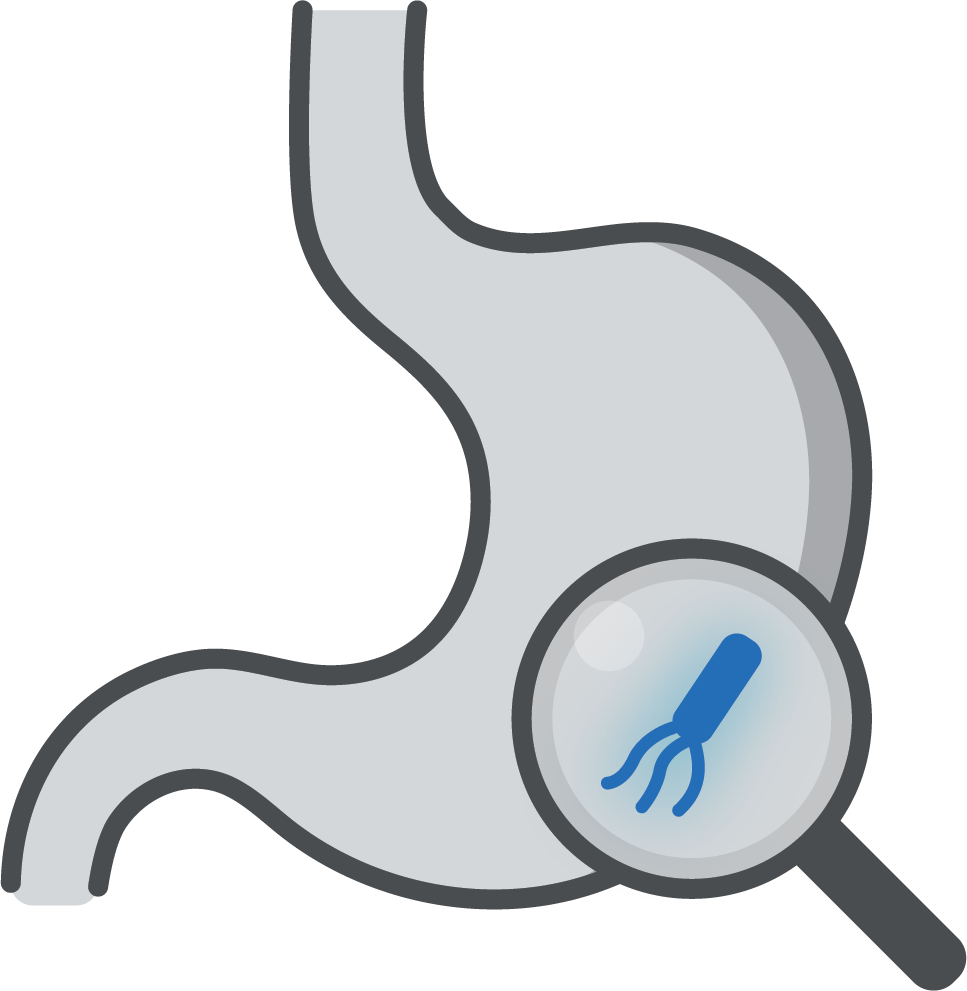H. Pylori Infection
Conditions

Helicobacter pylori (H. pylori) is a type of bacteria that infects the stomach lining. It is one of the most common bacterial infections worldwide, often acquired during childhood. It is also the leading cause of gastric ulcers. While some people with H. pylori may not experience symptoms, the bacteria can lead to serious complications, including ulcers, chronic inflammation of the stomach lining, and, in rare cases, stomach cancer.
Drinking contaminated water
H. pylori can spread through drinking water that has been contaminated with the bacteria, particularly in areas with inadequate sanitation.
Contact with someone infected with H. pylori
The bacteria spreads most commonly through direct contact with bodily fluids from an infected person, such as saliva, vomit, or stool.
Stool tests
A stool antigen test is reliable for detecting H. pylori by identifying bacterial proteins in a feces sample.
Urea breath test
The urea breath test involves drinking a solution or pill containing urea. If H. pylori is present, the bacteria break down the urea into carbon dioxide that can be measured in your breath.
Upper gastrointestinal (GI) endoscopy
An upper GI endoscopy involves inserting a thin, flexible tube with a camera into the stomach to examine the lining and collect tissue samples for testing.
Handwashing
Frequent and thorough handwashing, especially before meals and after using the restroom, reduces the risk of contracting H. pylori.
Avoid contaminated food and drink
Consuming only clean, properly prepared food and safe drinking water can prevent exposure to H. pylori bacteria.
- Abdominal pain
- Bloating
- Worsening of GERD (reflux)
- Belching
- Bad breath
- Nausea/vomiting
- Weight loss
- Black stool or blood in stool
- Anemia
Ulcers
H. pylori infections can lead to painful sores, or ulcers, in the stomach or the first part of the small intestine.
Inflammation of the stomach lining
Chronic gastritis, or stomach lining inflammation, commonly results from prolonged H. pylori infections.
Stomach Cancer
While rare, untreated H. pylori infections can increase the risk of developing certain types of stomach cancer.
Antibiotics and Proton Pump Inhibitors
The treatment for H. pylori is a combination of antibiotics (usually two) and a proton pump inhibitor (PPI) to eradicate the bacteria and reduce stomach acid. PPIs reduce stomach acid, creating a less hospitable environment for H. pylori and aiding in the healing of the stomach lining. After treatment, your doctor will request a follow-up test to confirm complete eradication, such as a repeat stool test, breath test, or endoscopy.
Histamine (H-2) blockers
H-2 blockers decrease acid production in the stomach, helping to relieve symptoms and support healing.
If you’re experiencing symptoms or are concerned about an H. pylori infection, seeking medical advice is essential. NYGA’s team of gastroenterologists specializes in diagnosing and treating H. pylori and related conditions, offering personalized care and advanced diagnostic tools to address your concerns.
